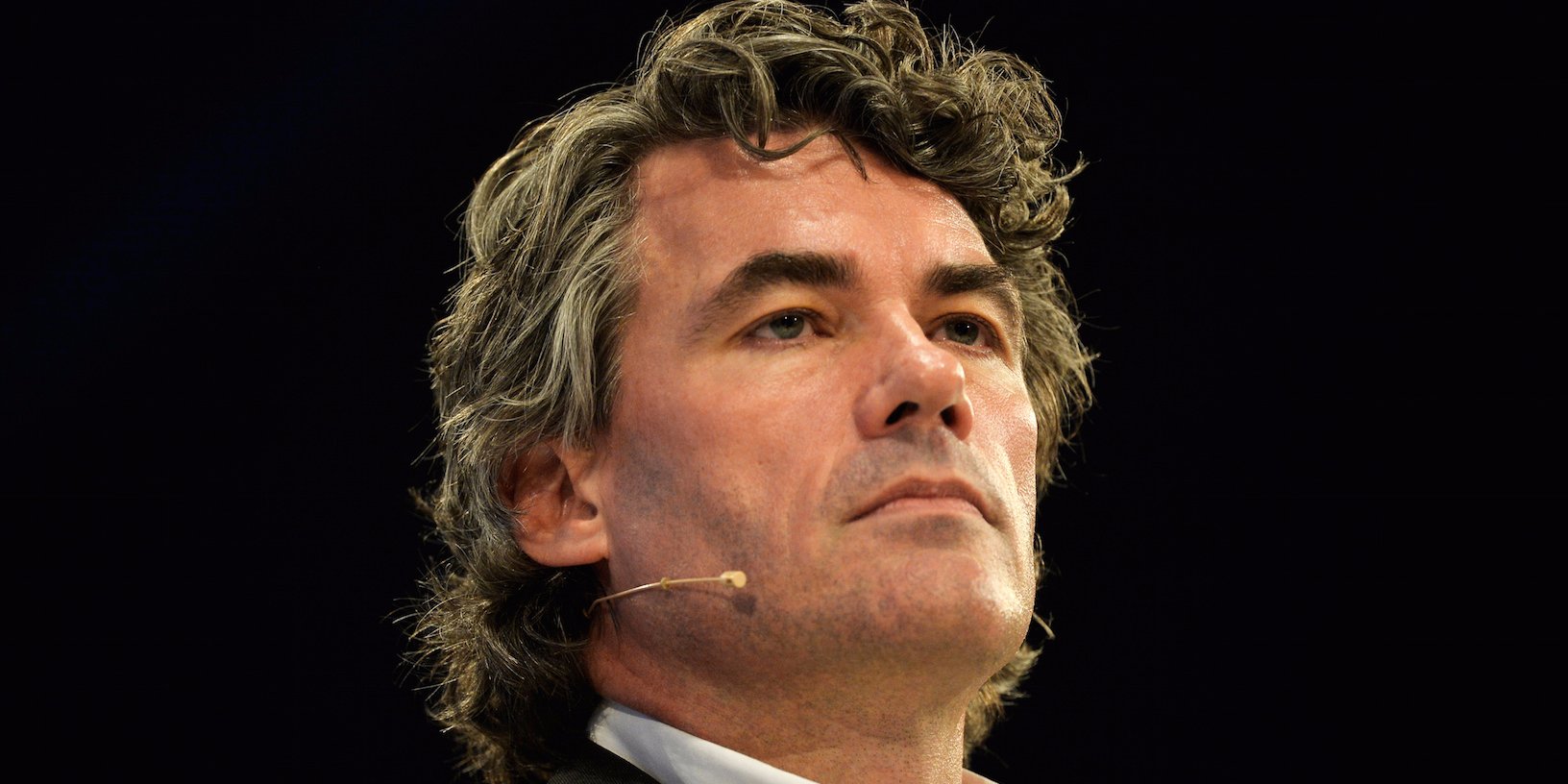 Gavin Patterson, CEO of BT, speaks at the Confederation of British Industry’s annual conference in London, Britain, November 6, 2017. He said recent events have been a ‘wake up’ call for business. REUTERS/Mary Turner
Gavin Patterson, CEO of BT, speaks at the Confederation of British Industry’s annual conference in London, Britain, November 6, 2017. He said recent events have been a ‘wake up’ call for business. REUTERS/Mary Turner
- Confederation of British Industry’s President said capitalism “seems to have forgotten about its purpose” at trade body’s annual conference on Monday.
- Recent political events have been a “wake-up call” that businesses need to do more to prove their worth to society, BT CEO said at the same event.
- Labour leader Jeremy Corbyn told the conference: “The economic system simply is not working.”
LONDON — Behind the day of speeches at the annual Confederation of British Industry (CBI) conference in London on Monday, was one existential question – is capitalism in crisis?
The big themes at the conference, which is one of the highlights in the UK business calendar, were Brexit, infrastructure, Britain’s productivity crisis, the fourth industrial revolution.
Unifying them was a sense of unease that the system of capitalism that had been shaped and built by the businesses of CBI members had lost its way.
The head of the CBI, the OECD, the chief of BT, and the leaders of both Britain’s main political parties addressed the question in one way or another at the event on Monday. The shared conclusion appeared to be that the system is in crisis — but that businesses can do something to rescue it.
‘An economy that gives everybody the chance of a secure and fulfilling life’
The conference began with a warning from CBI President Paul Drechsler that “capitalism… seems to have forgotten about its purpose.”
The CBI represents 190,000 UK businesses with around 7 million employees and Drechsler called for members to do more to embrace “inclusive capitalism,” cautioning that “until everybody feels the benefit of capitalism in their pockets and in their homes, we will have problems.”
Business leaders around the world are worrying that the social compact at the heart of the economic system could be broken after a string of political victories built on bashing big business or ignoring it.
 Jeremy Corbyn, the leader of Britain’s opposition Labour Party speaks at the Confederation of British Industry’s annual conference in London, Britain, November 6, 2017. REUTERS/Mary Turner
Jeremy Corbyn, the leader of Britain’s opposition Labour Party speaks at the Confederation of British Industry’s annual conference in London, Britain, November 6, 2017. REUTERS/Mary Turner
Warnings that Brexit would damage economic growth and businesses prior to Britain’s EU independence referendum had no effect.
Donald Trump attacked free trade and globalisation during his successful US presidential campaign. And Labour leader Jeremy Corbyn enjoyed an unexpected electoral surge in June’s snap UK elections whilst attacking the economic system.
Corbyn, not long ago seen as the boogie man of British business, couldn’t resist an “I told you so” moment at Monday’s conference.
Addressing the CBI conference for the second time in two years, he said: “I put it to you last year that for too many people, the economic system simply is not working, a system that’s delivered rising inequality and falling living standards for the majority.”
“I put it to you this year that a crucial reason for the surprising election result — the biggest turnaround in polls during an election campaign in British history — is that Labour went to the country with a vision that offered hope and change. Our manifesto — for the many, not the few — set out a fully costed programme to build an economy that gives everybody the chance of a secure and fulfilling life.”
The CBI rejected Corbyn’s solution for the problem, which involves renationalising railways and energy. CBI director general Carolyn Fairbairn said in a statement that a rejection of the free market would “hurt those who need help most and make the UK a laggard in the global race for investment.”
But it is getting harder to ignore Corbyn’s claims that something is going wrong. BT CEO Gavin Patterson said recent global events have been “a wake-up call” for businesses.
The worldwide backlash against globalisation, big business, and free trade has spawned the meme “Late Capitalism,” which The Atlantic called a “catchall phrase for the indignities and absurdities of our contemporary economy.” The leaked trove of tax documents dubbed the “Paradise Papers” hung over the conference, amplifying the sense of a system under attack.
Ángel Gurría, secretary-general of the OECD, said tax avoidance and evasion by both individuals and corporations “has fueled this backlash against globalisation,” and said businesses must promote growth that is “resilient and inclusive” by looking after their workers.
Patterson said: “With globalisation it’s clear, the very wealthy have done very well out of it and at the same time it’s allowed millions of people around the world to come out of poverty, but there is a group in the middle there, particularly in the western world, who have not seen the benefits of globalisation.
“I think whether you’re in government or whether you’re in business, it is up to us to try and share the value and ensure that it is seen as a path for good, it drives social mobility and ultimately the case for responsible capitalism is remade,” Patterson said. “Business needs to step up and make its case.”













